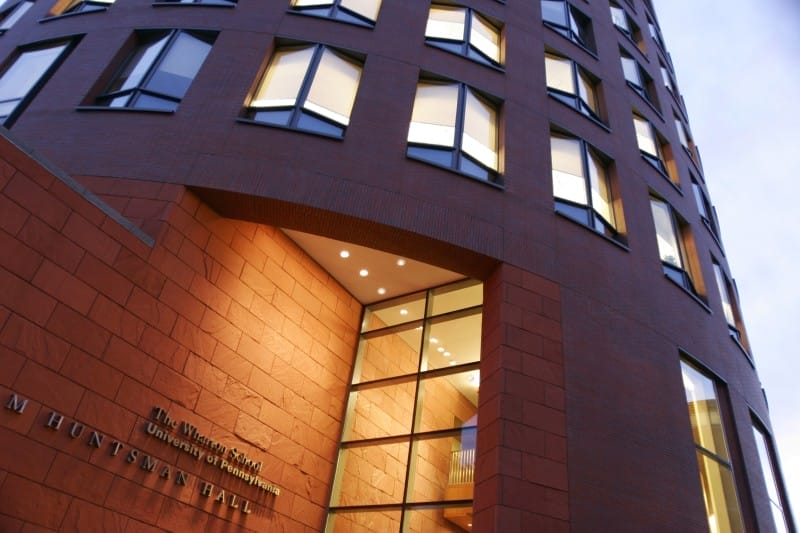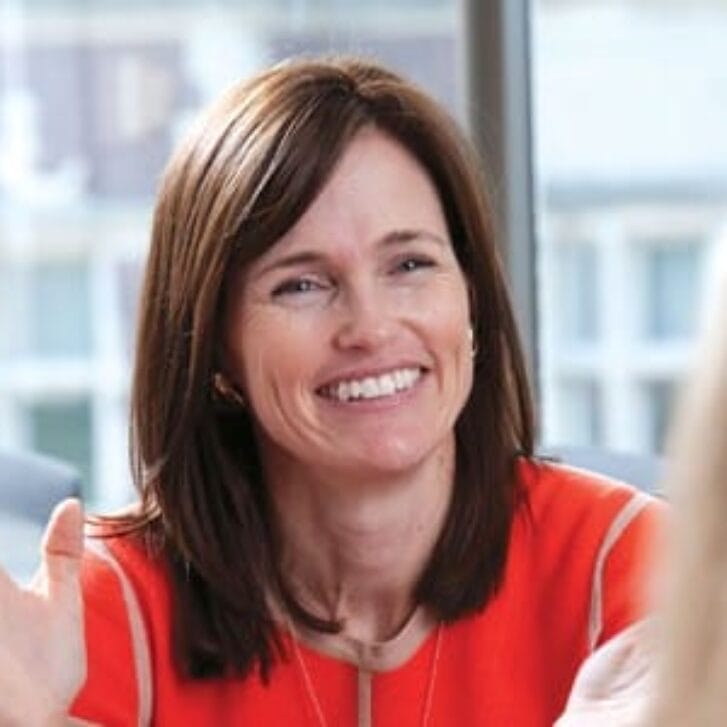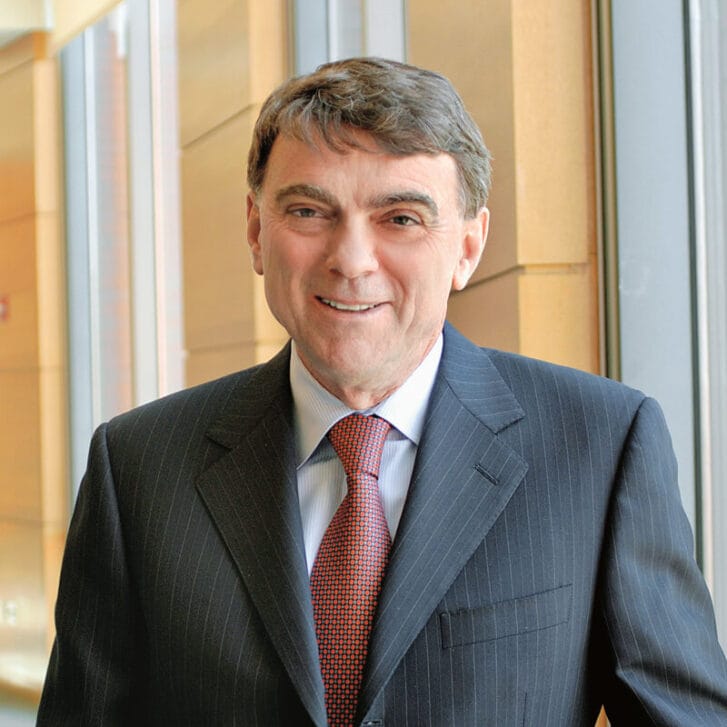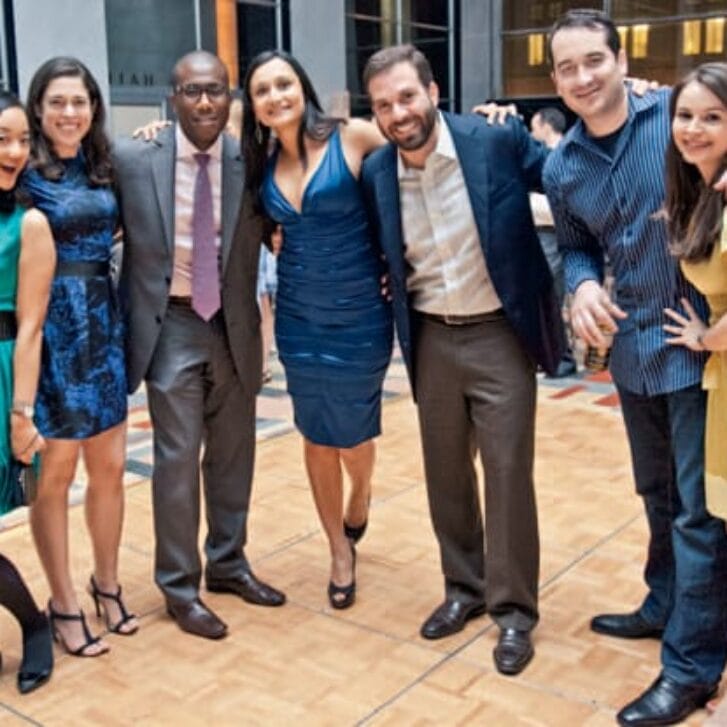Charged by Dean Thomas S. Robertson to develop an effective and sustainable lifelong learning program, the School’s Innovation Group set out to learn what alumni really need and want.
The Group turned to those who know best: the alumni themselves. Through a formal needs assessment that included alumni interviews and focus groups, the Group was able learn about who Wharton graduates are, how they learn and what they need.
The gathered information confirmed that stage of career is an important factor in shaping learning needs. Post-undergraduate, early-career alumni need to learn different things in different ways than midcareer alumni who are at the helm of an organization.
Providing educational experiences that mesh with learning styles is an equally critically factor. For example, some alumni thrive in sequential systems, are task and goal oriented, and seek long tenures in organizations. Their learning is undertaken to fuel career advancement.
Others are more entrpreneurial in their way of learning. They network in search of collaboration. Scholarly and creative, they tend to learn to advance their projects and to be more self-directed in their education.
Regardless of learning style or stage of career, alumni sent one very clear message: They want Wharton to be a partner in the process, including Wharton faculty, alumni and content.
EDUCATION VS. TRAINING
The desire to remain connected with Wharton is one of the most important findings of the research: MBA alumni hold the Wharton brand, their fellow alumni and their Wharton education in high esteem. According to all alumni interviewed, any lifelong learning educational offerings must meet a number of criteria to be worth their time and effort. Most important is that the programming is of the same caliber as their on-campus Wharton experience.
“They want to be Wharton students for life,” says Laura Zarrow, GED’95, senior project director of Wharton’s Innovation Group and chair of the Lifelong Learning Core Team.
Their MBA experience is the high bar against which they measure all subsequent learning experiences. Other educational opportunities such as traditional continuing education, industry conferences and corporate coursework are viewed as “training,” while their Wharton experiences exemplifies real education. They are seeking more MBA-quality learning experiences—online and in person, in real time and on their own schedule.
Convenience is also important. Alumni want lifelong learning that comes in a mode they find most appealing and effective. It must be easily integrated into their already full lives.
Regardless of how the learning is delivered, they want to tap into the vast theoretical and experimental knowledge of professors as well as the real-world experience of their peers. Many alumni asked for a bottom-up collaborative experience that builds their cultivated personal network and store of knowledge.
“They don’t trust anyone as much as they trust their fellow alumni,” Zarrow explains.
When you translate this insight about Wharton alumni into educational needs what you get is on-demand programming for both professional mindsets and all career stages. Lifelong Learning becomes a resource to keep alumni up to date and help them prepare for the next stage in life or career, to develop the soft skills needed in their current positions and to help address personal challenges.
Zarrow conducted more than 75 one-on-one interviews with alumni—from undergraduate, WEMBA, MBA and doctoral programs, from the classes of 1981, 1991, 2001, 2004, 2006 and 2009—to gather the raw data that informs the needs analysis. Zarrow and Don Huesman, GED’06, GrD’10, managing director of the Innovation Group, gathered additional information during interviews at the 2011 Global Alumni Forum in San Francisco and at alumni panels in New York and Boston. The work was done in conjunction with a cross-departmental Core Team, with members from the Innovation Group, Marketing and Communications, External Affairs, Executive Education, Wharton | San Francisco, and Wharton Computing. The quotes that you see on these two pages (under the phrase “Lifelong Learning Is …”) are actual excerpts from these interviews.
REUNION
MBA Reunion Weekend this May will bring to life the discoveries of this needs analysis, by embracing the innovation practices taught at the School. Some of the topics for this year’s events will be “crowdsourced.”
The plan, according to Zarrow, is for alumni to shape Reunion Weekend programming through an Innovation Tournament. Structured as an online suggestion and voting procedure, the Tournament will take alumni through the process of articulating needs and interests, winnowing them down to those that are most relevant to the most people. The top issues will become the central questions to be addressed at Reunion by “thought teams,” which will be comprised of alumni, faculty and topic experts. The teams will start their dialogue online, ahead of Reunion, meet in person during the weekend, and continue their work as needed online and in person afterward.
“It’s actually going to allow Reunion to start a whole lot earlier,” Zarrow says.
This will not only provide a chance for them to learn what they need and want to learn, but the crowdsourced programming will help them build relationships with fellow alumni who share their interests and concerns. When alumni attend these events in May, the interactions will be all that more meaningful. They will form the basis for strong personal ties that, after they leave campus, the alumni can continue to cultivate online, by phone and in person for years to come.
JOIN THE INAUGURAL REUNION INNOVATION TOURNAMENT
In order to better serve the alumni community’s needs, Wharton is proud to host an Innovation Tournament for the 2012 MBA Reunion Weekend.
In this tournament, you, our alumni, suggest and vote on topics that you find interesting and relevant. The top 10 ideas will become part of the programming for Reunion Weekend. Just follow the steps below and tell us what you want to discuss.
1. Log in to whr.tn/ReunionTournament and answer any of these questions: What business topics or issues are most challenging to you right now? What do you most need to learn to be an even more effective leader? What societal challenges could be improved with the input and talent of the Wharton alumni network?
2. Join the discussion and vote on ideas. Check back as often as you’d like to see what others have posted or add more of your own ideas.
3. Prior to your reunion, we’ll announce the top 10 ideas. Choose your favorite topic and then join a “thought team” of alumni, faculty and business leaders to explore ideas before, during and after Reunion Weekend.
Don’t wait. Log in now to whr.tn/ReunionTournament and help shape your reunion!


























